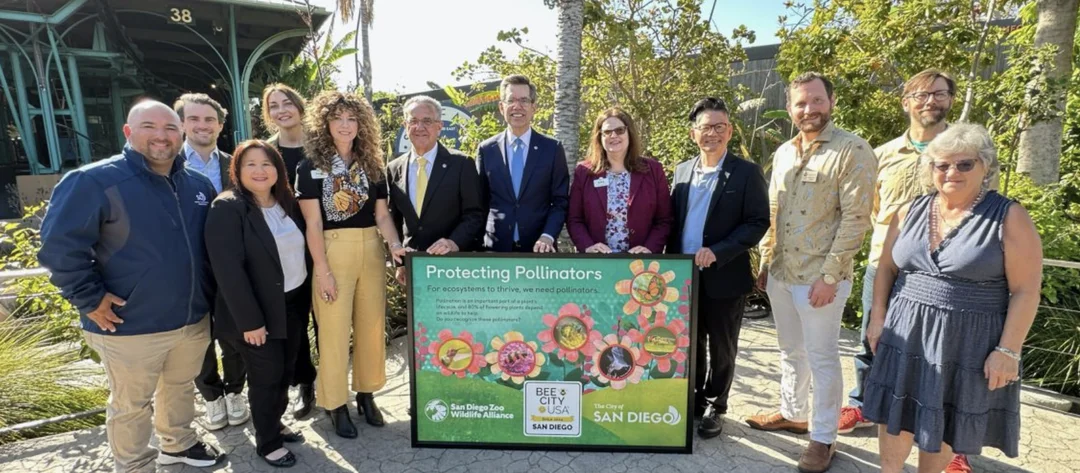
San Diego Zoo Celebrates World Bee Day with New Bee City USA Sign
In a vibrant celebration of biodiversity, the San Diego Zoo unveiled a new Bee City USA sign in honor of World Bee Day, reaffirming its commitment to creating and maintaining habitats for pollinators. The city, designated as a Bee City USA affiliate in August, is taking significant strides towards cultivating pollinator-friendly environments across its urban landscape.

Council President Joe LaCava, who has been instrumental in this initiative, emphasized the importance of responsible pesticide use and the safeguarding of local ecosystems, particularly in coastal regions rich with pollinator sanctuaries. “These efforts are critical to the health of our region’s ecosystems, agriculture, and food supply,” LaCava said, highlighting the interconnectedness of nature and human society.
San Diego's achievement as the largest metropolitan area among over 300 cities to be designated as a Bee City USA is a significant milestone. The initiative, led this year by LaCava alongside James Nieh, a professor of ecology at UC San Diego, aims to promote awareness about biodiversity, advocate for native plants, and encourage sustainable practices among residents.

In his remarks, Nieh echoed the sentiment that this initiative transcends pollinators. “This is not just about pollinators – it is about all of us working together to care for the world we share,” he stated. These words remind us that ecological responsibility is a collective endeavor, with each individual playing a role in the stewardship of our environment.
As we reflect on the unveiling of the Bee City USA sign at the San Diego Zoo, it is clear that this initiative is about more than just bees. It represents a growing movement towards protecting our natural habitats, fostering community engagement, and ensuring a stable future for all species dependent on these ecosystems.
This accomplishment raises an essential question for all of us: How can we contribute to creating a sustainable environment in our own communities? We invite readers to share their thoughts and suggestions on being active participants in this vital movement. Your insights could inspire others to join the cause!